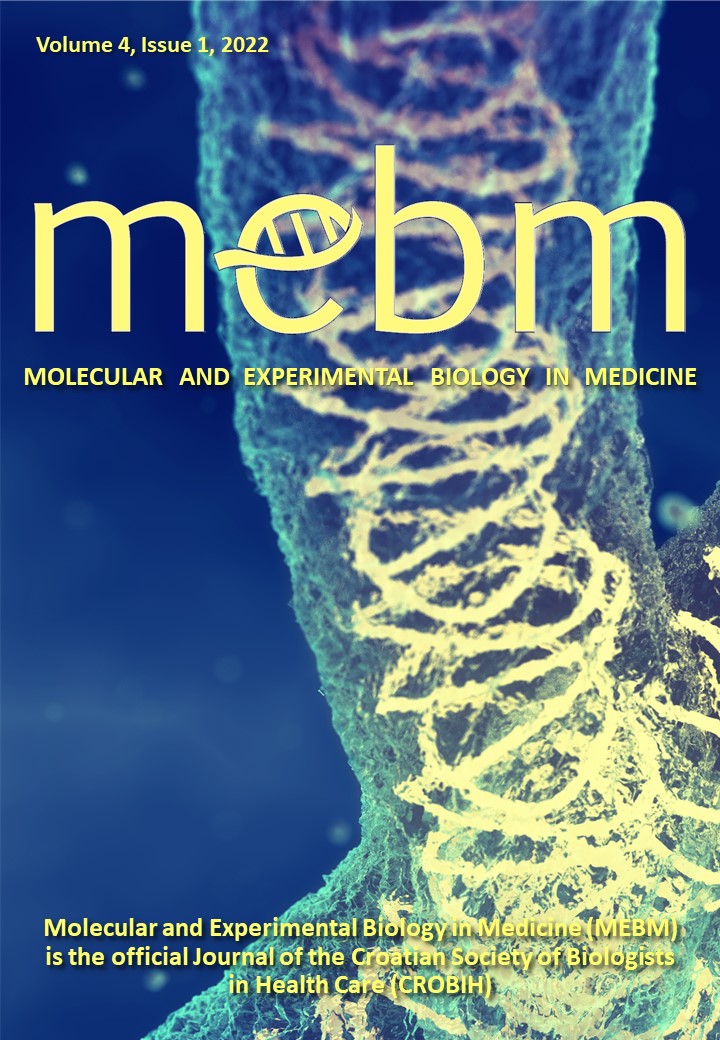HLA ANTIGEN AND HLA EPLET MISMATCHES - IMPORTANT FACTORS FOR DEVELOPING DONOR-SPECIFIC ANTIBODIES AFTER KIDNEY TRANSPLANTATION
Abstract
Kidney donor-recipient mismatches (MM) in human leukocyte antigen (HLA) system can have the impact on graft survival as de novo formation of donor-specific HLA antibodies (DSA) post-transplant can increase the risk of acute and chronic rejections. Eplets, the smallest functional units of epitopes, are in recent years also being considered in recipient-donor matching. We have retrospectively analysed the relationship between MM at HLA-A, -B, -DRB1 and -DQB1 loci and the development of DSA in 47 kidney transplant recipients that were negative for the presence of HLA antibodies pre-transplant. A total of 19 patients (40%) developed DSA (DSA+) post-transplant, revealing sensitization to HLA class II MM antigens as the most prevalent (84% of DSA+ patients). MM at all HLA loci contributed to the development of HLA locus-specific antibodies, with the prevalence of HLA-DQ sensitization, as 41% of recipients with HLA-DQ MM developed DSA. HLAMatchmaker analysis for HLA-DR/DQ total eplet MM showed statistically significant difference between DSA- (N=33) and DSA+ recipients (N=14) for a total number of eplet MM (300 in DSA- vs 248 in DSA+; P=0.0004). These results emphasize the importance of HLA Class II matching in kidney transplantation.




